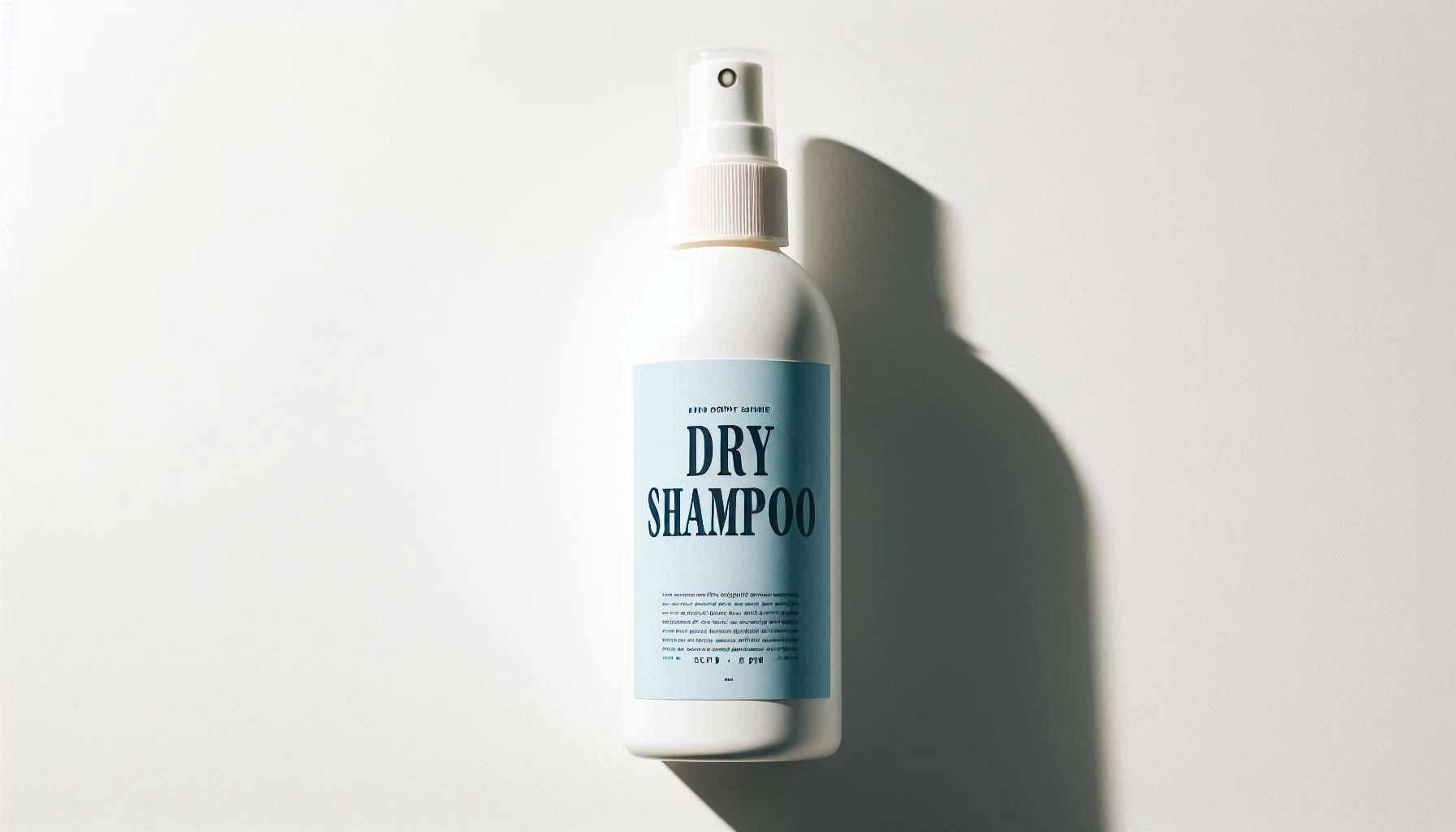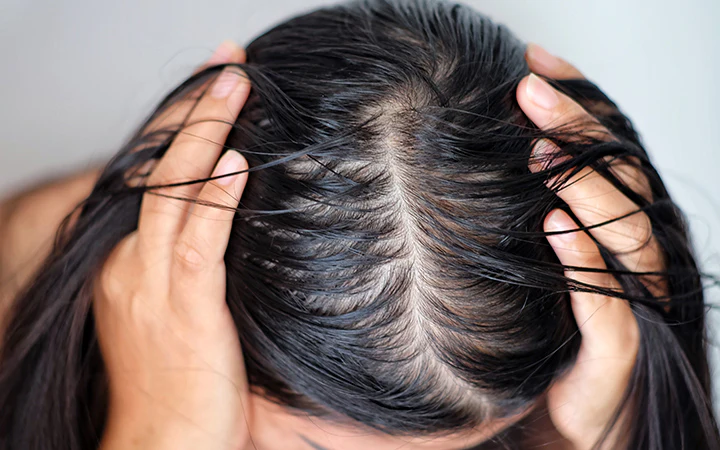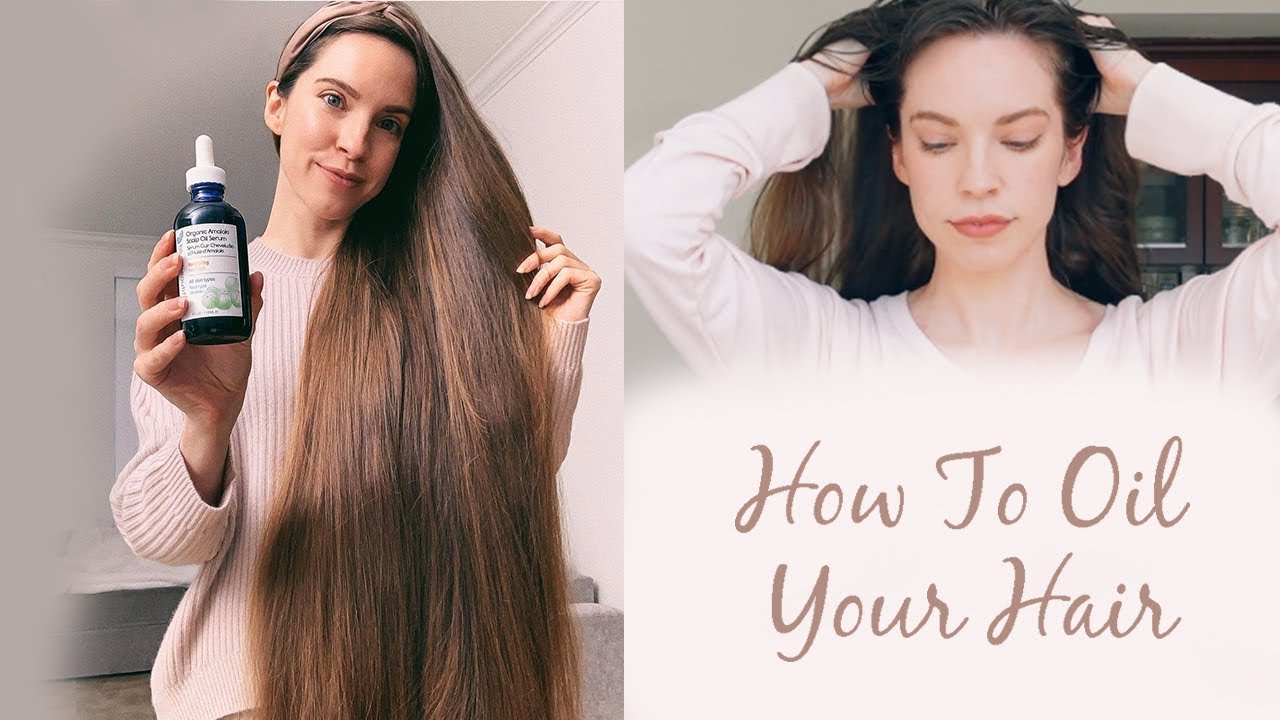If you’re a dry shampoo addict, you’re not alone! Many rely on it for quick, refreshed hair without the hassle of a full wash. But is dry shampoo actually bad for your hair? Here, we’ll explore how to use it wisely to avoid potential damage and keep your scalp healthy.
Is Dry Shampoo Bad for Your Scalp and Hair?
In one word: No, but only if you use it in moderation. Dry shampoo is meant to absorb excess oil and extend the time between washes. It’s a great tool for occasional use, but relying on it too frequently can lead to problems. Overuse of dry shampoo can result in:
- Itchy, dandruff-prone scalp: The product builds up on your scalp, irritating it and leading to dryness and flakes.
- Damaged hair: Dry shampoo can weaken the hair shaft over time, increasing the risk of breakage.
- Hair loss: Clogged hair follicles from product buildup can cause temporary hair thinning or even hair loss.
Dry shampoo doesn’t remove oils or dead skin cells—it simply masks them. Without proper washing, the buildup remains, which can alter the scalp’s microbiome and contribute to these issues.
The Benefits of Using Dry Shampoo
When used correctly, dry shampoo has undeniable benefits:
- Absorbs oil and refreshes hair: It extends the time between washes, making it ideal for busy lifestyles.
- Adds volume and texture: It’s a quick fix for limp or flat hair.
- Saves time: Unlike regular shampooing, which requires styling afterward, dry shampoo is a quick, on-the-go solution.
However, to avoid excess buildup, it’s important to use high-quality, residue-free formulas like Davines’ Invisible Dry Shampoo.
How Often Should You Use Dry Shampoo?
Experts recommend using dry shampoo no more than 2–3 times a week. Overusing it can lead to long-term scalp issues and hair damage. While it helps reduce the need for daily washing, it shouldn’t completely replace regular shampooing. Proper hair washing is essential for removing dirt, oils, and dead skin cells that dry shampoo can’t eliminate.
Alternatives to Dry Shampoo: Other Ways to Refresh Your Hair
If you’re looking to cut back on dry shampoo, there are plenty of alternatives that can keep your hair fresh:
- Hair training: Gradually extend the time between washes to “train” your scalp to produce less oil.
- Sea salt sprays: These can mimic the freshening effect of dry shampoo by adding texture and volume.
- Hair oils and dry conditioners: Help hydrate and refresh hair while keeping it soft and manageable.
These alternatives can prevent buildup and improve scalp health while keeping your hair looking great.
Can Dry Shampoo Cause Hair Loss?
In some cases, yes. Overusing dry shampoo can lead to clogged hair follicles, which can cause scalp inflammation and result in hair thinning or shedding. The good news is that this hair loss is usually temporary. Once you cut back on dry shampoo and wash your hair regularly, your hair can regrow.
Is Dry Shampoo Good for Oily Hair?
Yes, dry shampoo is especially useful for those with oily hair, as it helps absorb excess oils and refreshes greasy strands. However, be cautious not to use it too frequently—once or twice a week is ideal. Overusing dry shampoo could actually trigger more oil production as your scalp compensates for the lack of washing.
Final Thoughts: Use Dry Shampoo Sparingly
Dry shampoo can be a helpful addition to your haircare routine when used in moderation. It’s a quick, convenient way to extend the time between washes and add volume to your hair. However, it’s important to remember that it doesn’t replace actual shampoo. Wash your hair regularly to prevent product buildup, scalp irritation, and potential hair loss.
So, is dry shampoo bad for your hair? No, as long as you don’t overuse it and maintain good scalp care.



